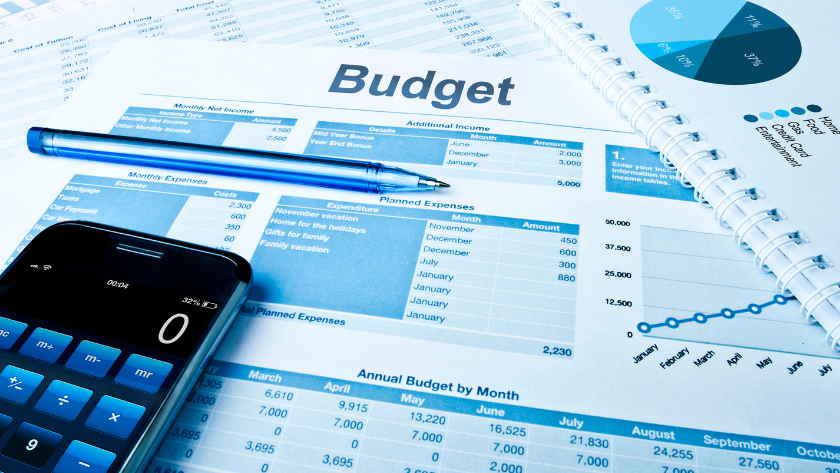Everyone’s spending habits are different, so everyone’s budget will be unique to their lifestyle. It is completely your decision to do what you believe will work best for you. Some individuals will do better with a very detailed budget, while others may get stressed out from having too many categories. The only advice I usually give is don’t have so few categories that your true expenses are hidden in overarching categories, and don’t have so many that when you look at your budget, you get overwhelmed. The point of budget categories is to help us organize our expenses, gain insights into our spending habits, and keep us on track towards our goals.
To help you get started, here are some popular categories that we often see:
Fixed Expenses
Fixed expenses are our expenses that happen once every month at the same time of the month and are usually a similar amount every month.
- Mortgage / Rent
Whether you own your home or rent, you know the amount will be the same each month and due at the same time each month.
- Utilities
Depending on your housing situation, this may be one bill or you might have separate bills for water, electricity, natural gas, etc.
- Internet
With work from home and remote jobs becoming more common, home internet is becoming more of a necessity.
- Phone
This one is pretty self-explanatory. Most individuals’ phone bills are every month and about the same amount every month. If you are on the side of not wanting too many categories, it is fairly common practice to group phone, internet, and cable into one category. Especially if you have the same provider for all three.
- Insurance
Whether life, home, auto, or any other insurance you may need, you could have them all roll into one category or an individual category for each.
- Memberships / Subscriptions
Whether a gym membership or Netflix subscription, if they are every month, it is common practice to have them with your fixed expenses.
- Monthly Debt Payments Any auto loans or other debt you are making monthly payments on.
Budget Tip: When it comes to monthly fixed expenses, they can really start to add up. Increasing the minimum amount of money you need to make each month just to pay your fixed expenses. Most services (insurance, subscriptions, etc.) will offer discounts if you pay annually instead of monthly. This can help reduce your fixed expenses.
Living Expenses
Living expenses are the expenses that we need every month. They are expenses that will usually happen multiple times a month, and the amounts are random.
- Groceries
A grocery category is a must for every budget. Whether you grocery shop once a month or every week, we need to set aside money for groceries.
- Clothing
Depending on your household or lifestyle, you could have clothing for your living expenses or long-term expenses.
- Child Care
Depending on your needs and arrangements, this could be a fixed expense or a long-term expense.
- Pet
Don’t forget about your pets when making a budget. This could include pet care, food, or toys.
Budget Tip: Do not combine your grocery category with other food categories, such as dining or takeout. It is a surefire way to burn through your grocery budget before the month is through.
Long-Term Expenses
Long-term expenses do not happen every month. They may happen once a year, or they may happen at various times throughout the year and could be random amounts.
- Emergency Fund
When budgeting, you want to make sure we are budgeting our savings so that we know that money is already set aside. Whether your emergency fund is fully funded or you are still working on it, you should have a category for it.
- Auto Maintenance
If you have a vehicle, you are going to want to set money aside for maintenance and repairs. Whether for general maintenance like brakes and tires or for an unexpected repair like a flat tire,
- Home Improvement
If you own your own house or are responsible for repairs, you are going to want to be setting money aside for expenses, whether planned or unplanned.
- Travel and Vacation
Make sure you are setting some money aside every month for vacations. Nobody wants to be paying off a vacation on their credit card when they get back home.
- Household Items
You could combine this one with home improvement if you would like, but any general household items that are needed to keep your home running smoothly. Light bulbs, furnace filters, vacuum cleaners, or just general cleaning supplies.
Budget Tip: Budgeting is hard in the beginning, but proper planning of your long-term expenses can make budgeting easier. The farther out we plan our finances, the more time it gives us to save up money for various expenses, especially big-ticket items like vacations and holiday spending.
Discretionary Expenses
Discretionary expenses are just that: discretionary. These are the expenses that have no due date and are nonessential. Your household is not dependent on these to operate.
- Dining Out
- Entertainment
- Spending
While discretionary spending is nonessential spending to keep your household up and running, it is still important to plan for fun. This is important because people who cut back on their spending too far and don’t give themselves any fun spending are more likely to burn out on their financial journey.
Bonus
We recommend that you have a group of categories for generosity. A generous person is a happy person.
- Church
- Charity
- Gifts
These are just recommendations to help you get started, not hard-and-fast rules for budgeting. Your categories may look different, and you may organize them differently, and that is ok. We want you to organize your budget in the way that works best for you and your household. Don’t overthink it; you can always adjust your categories to add more or remove categories in the future.
Happy Budgeting





